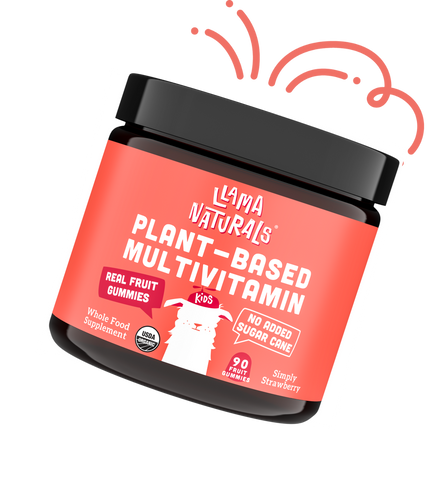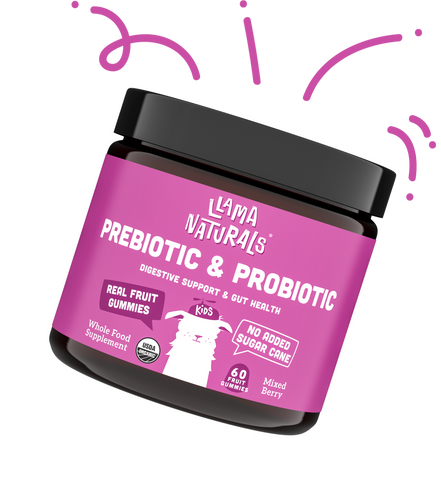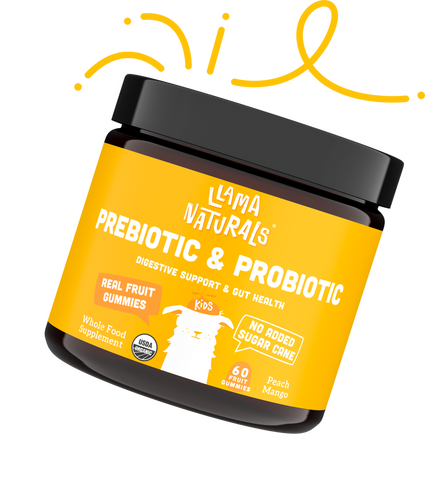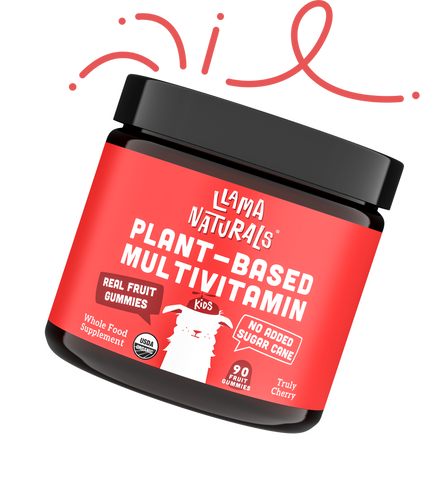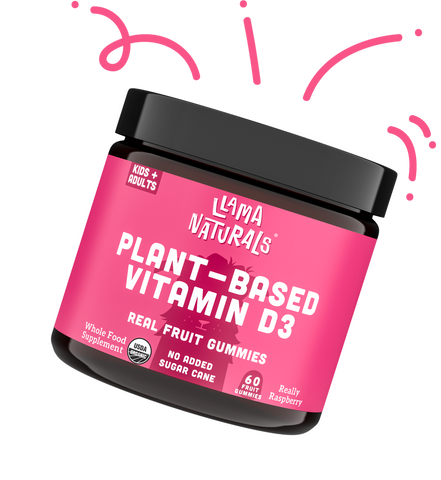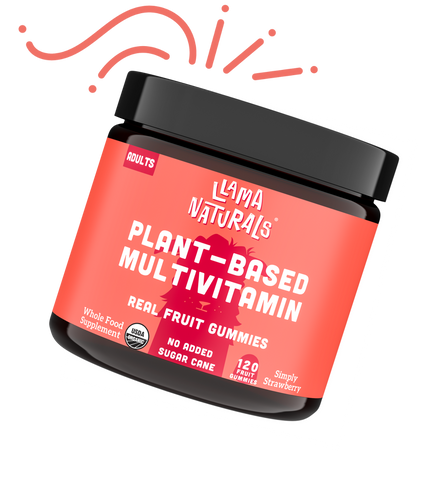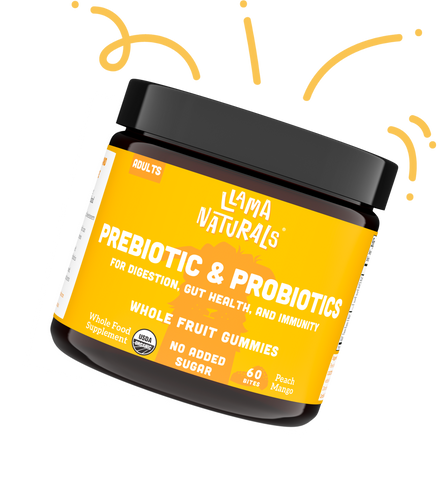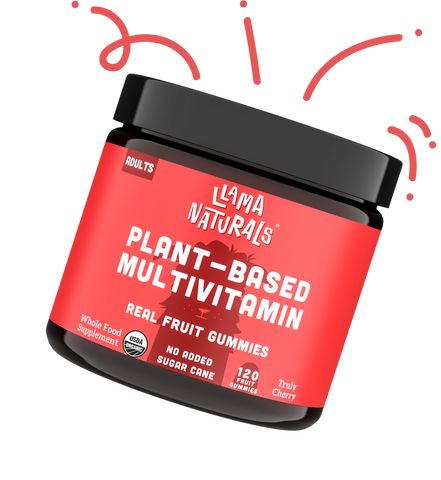An Explainer on Vitamin A for Kids: Benefits, FAQs, and More
Key Points:
- Vitamin A for kids is an important nutrient with several health benefits.
- Vitamin A deficiency has serious health effects, but too much vitamin A can also be toxic.
- Kids may require vitamin A supplements due to picky eating habits or certain health conditions.

Good nutrition is important for your kids’ growth and development. When they eat well, they’re happier, healthier, and you save a lot of unnecessary visits to the pediatrician.
One important nutrient that doesn’t always get the attention it deserves is vitamin A. How much do you know about vitamin A for kids?
In this article, we’ll discuss the many ways that vitamin A helps to support healthy development in children, how much they need, and where they can get it from. Read on to learn more about vitamin A for kids.
What Is Vitamin A?
Vitamins are organic substances the body needs in small amounts to function well.
Vitamin A is one of the four fat-soluble vitamins. Fat-soluble vitamins such as vitamin A have one advantage: They can be stored by the body so it takes a while before the body runs out of these vitamins.
Vitamin A is an essential vitamin, meaning that the body can’t produce it so it must be obtained from your diet. There are two forms of vitamin A in our diet: preformed vitamin A (retinol) and provitamin A (carotenoids). Carotenoids are usually converted to retinol, the active form that the body can utilize.
Preformed vitamin A is found in animal sources, fortified foods, and supplements, while provitamin A is obtained from plants. Both forms of vitamin A play slightly different roles in the body, so it’s advisable to include a variety of foods rich in vitamin A in your child’s diet.
Before we look at these foods, let’s see why vitamin A for kids is important in the first place.
Benefits of Vitamin A for Kids

Right from pregnancy, kids need vitamin A for good health. During the fetal period, vitamin A plays a part in the development of organs such as the heart, lungs, eyes, and kidneys.
As babies transition to early childhood, they require vitamin A for even more body functions. The benefits of vitamin A for kids include:
- Essential for healthy eyesight
- Strengthens their immune system
- Promotes healthy skin and hair development
- Lowers the risk of certain cancers
It’s important to ensure that your kids get enough vitamin A because if they don’t, they may suffer from serious health conditions. The symptoms of vitamin A deficiency are:
- Night blindness
- Dryness of the eyes, a condition known as xerophthalmia
- Frequent infections
- Stunted growth
- Dry, bumpy skin
- Poor wound healing
Though the prevalence of vitamin A deficiency is low in developed countries, take care not to forget about this important vitamin. Your child might be at risk of vitamin A deficiency due to prematurity or health conditions like cystic fibrosis, both of which interfere with the absorption of vitamin A.
How Much Vitamin A Do Kids Need?
When it comes to vitamin A, there are two sides to the same coin. Too little vitamin A can cause significant health problems, while too much can also affect your child’s health.
For this reason, you should be aware of the sweet spot so that your kids don’t lack or get too much vitamin A. So, how much vitamin A do kids need?
The National Institutes of Health recommend the following doses of retinol activity equivalents (RAE):
- 0-6 months: 400 mcg
- 7-12 months: 500 mcg
- 1-3 years: 300 mcg
- 4-8 years: 400 mcg
- 9-13 years: 600 mcg
- 14+ years: 900 mcg for males and 700 mcg for females
- Pregnant women 750-770 mcg
- Breastfeeding mothers: 1,200-1,300 mcg
However, high doses of vitamin A can result in vitamin A toxicity. The symptoms of vitamin A toxicity to look out for include:
- Nausea
- Skin irritation
- Abdominal pain
- Irritability
- Blurred vision
- Bone pain
- Hair loss
- Loss of appetite
It’s easier to overdose on vitamin A from supplements, especially the ones that contain retinol. Always stick to the correct doses for kids and store the supplements away from your children’s reach to avoid an accidental overdose.
Food Sources of Vitamin A

The best way to ensure that your kids get enough vitamin A is through a balanced diet. A balanced diet in this case consists of both plant and animal sources.
Generally, we recommend more plant sources of vitamin A, which include:
- Sweet potatoes
- Carrots
- Cantaloupe
- Apricots
- Mangos
- Green leafy vegetables such as spinach, broccoli, and turnip greens
- Whole grains
- Fortified breakfast cereals (be sure to check the nutritional value)
Animal sources of vitamin A are:
- Liver
- Kidney
- Fatty fish such as tuna and herring
- Fish oil
- Dairy products such as milk, butter, and cheese
- Eggs
Vitamin A Supplements for Kids
Many supplements on the market can boost your child’s vitamin A intake. You might be wondering, why would my child need vitamin A supplements?
For starters, most kids are picky eaters, and their preferences are skewed towards snacks or junk food. If this is your child, it might be difficult to get them to finish their plate of vegetables.
Children who suffer from disorders that affect nutrient absorption, such as celiac disease, are also at risk of vitamin A deficiency. All in all, it’s hard to keep track of whether or not your child is getting enough of all the nutrients they require.
Before you give your child any supplements, always consult your healthcare provider or dietitian for guidance. If you choose to go the supplement route, there are a few things you should know.
Vitamin A supplements are available as either pure vitamin A supplements or as part of multivitamin supplements. The supplements can contain either of the two forms of vitamin A, or both.
It’s better to go for supplements that contain all or a majority of vitamin A in the form of provitamin A (carotenoids), as these are not toxic even in high doses.
With that in mind, how can you ensure you get the best high-quality supplements?
Truth be told, most of the supplements out there do not meet high standards. As the FDA regulates dietary supplements differently from food and drugs, it’s easy for sub-standard products to reach the market.
Here’s a tip: Look for products from reputable brands that prioritize quality. A demonstration of third-party testing is a plus. Also, read the product labels carefully and avoid products with unhealthy additives. Finally, only purchase products whose dosages are meant for kids.
Luckily, it’s never been easier to get your kids the quality supplements they deserve. Llama Naturals produces the best plant-based multivitamin gummies for kids. Llama Naturals’ whole-fruit gummy vitamins contain 13 essential vitamins, including vegetable-sourced vitamin A, carefully formulated for optimal absorption.
The gummies are slow-cooked to retain the rich phytonutrients and the alluring fruit flavor. In addition, they contain no added sugar but still taste delicious, the kind that your kids will crave.
Vitamin A for Kids: A Healthy Companion

Vitamin A is an essential nutrient that supports your child’s immune system, bone growth, and vision. It can also help protect against infection and illness.
However, getting enough vitamin A through diet alone is difficult due to children’s picky eating habits or certain health conditions. If your child isn’t getting enough vitamin A in their diet, you may want to consider vitamin A supplements.
For organic, high-quality multivitamin supplements, Llama Naturals has you covered. Choose Llama Naturals Plant-Based Multivitamin Gummies for the perfect boost your child’s health requires.
Llama Naturals is a plant-based nutrition brand that has created the World’s First Whole Fruit Gummy Vitamins that are made with no added sugar and whole-food vitamins. They are USDA Organic, Vegan, Gluten-Free, free of common allergens, and are slow-cooked on low heat to retain rich phytonutrients & fruit flavor. It’s a win-win gummy vitamin that the whole family will love.
